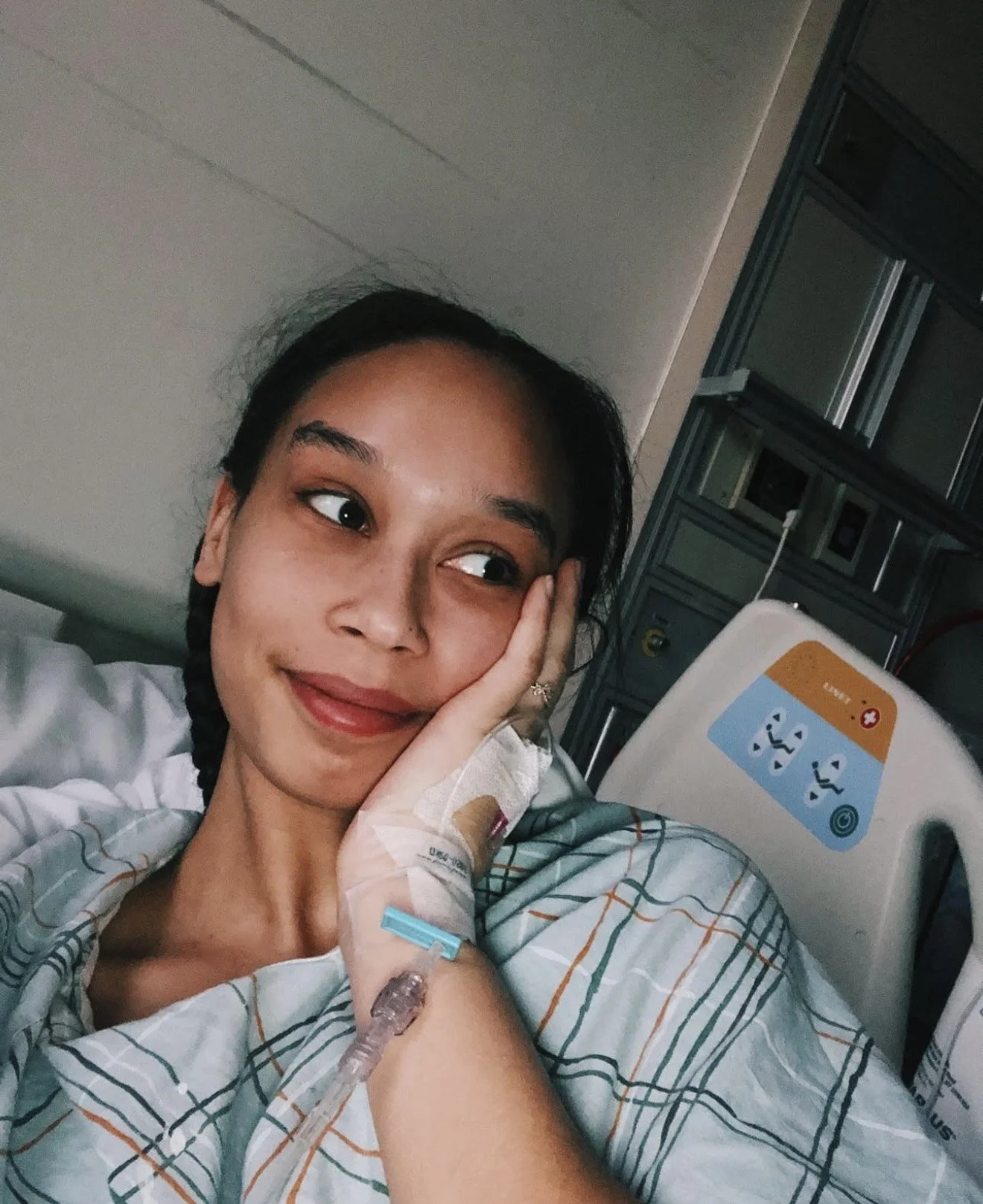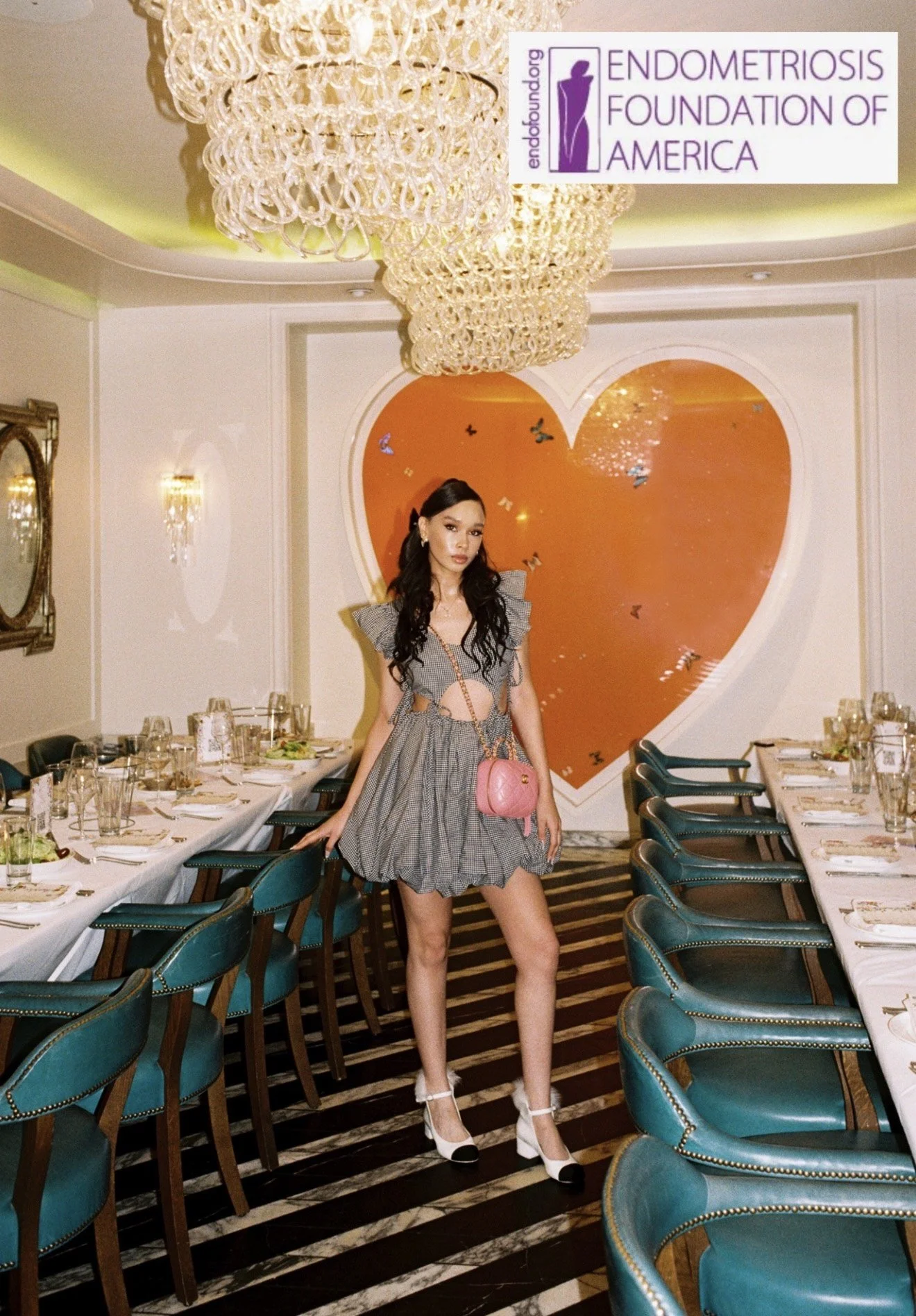A Conversation with Maya McHenry: Endo Warrior, Publicist, Founder, Ambassador and Fitness Enthusiast
By: Ashley Williams
The current healthcare system wasn’t made for Black women.
The complete disregard for Black women is evident in maternal mortality rates, rates of cardiovascular disease and treatment of chronic diseases like endometriosis; the latter, lacking awareness, has even been dubbed the “white woman’s disease.”
So what does endometriosis look like when the woman suffering from it does not have blonde hair or blue eyes? Meet Maya McHenry, publicist, founder, ambassador, fitness enthusiast and endo warrior.
In a conversation with KIMBRITIVE Maya shares her journey to reclaiming her health.
Q: When were you diagnosed and how did that impact your life?
I had 10 years of undiagnosed endometriosis [but] one of my old endo specialists was convinced that I was born with it and I had it my entire life, because it can also be hereditary and my older sister Tiffany had endometriosis.
My first endo episode was my senior year of high school. I had a pain that felt basically like a knife going up my butt throughout my private place. It was so debilitating that I actually ended up passing out. My sister Lyric and my mom told me that they had to pick me up off of the floor and rush me to the hospital.
Nobody, no doctors, told me I had endometriosis. We didn't have the education or the research to know what endometriosis really was, especially because I was so young. Growing up with stomach issues, in middle school, elementary school, I was just constantly so sensitive to certain foods. So automatically, you know, our mind didn’t go to endo.
My gynecologist even told me I definitely didn't have it but she was coming from a more protective place because unfortunately, to even technically really get diagnosed with endometriosis, you have to get a laparoscopy. I also had a handful of white male doctors who said because I was struck with trauma as a survivor of sexual abuse and physical abuse that it was my anxiety, [devaluing] what I was going through.
It was also the nurses who would not believe my pain, particularly white women, one of them, saying a racial slur to me during one of my endo episodes.
Q: WHAT SYMPTOMS DID YOU EXPERIENCE PRIOR TO YOUR DIAGNOSIS?
My periods were abnormally painful to the point where I had to go to the hospital a lot. I could not put a tampon in. Sexual intercourse was very painful for me. I would get back pain and migraines.
Q: IT CAN BE EXTREMELY FRUSTRATING WHEN IT SEEMS LIKE YOUR BODY ISN’T DOING WHAT YOU WANT IT TO DO. HOW HAS HAVING ENDO IMPACTED YOUR MENTAL HEALTH?
I've had three procedures for endo and I finally feel somewhat normal, but endometriosis will always be a part of my life. It can potentially grow back and there's still no actual cure. This year and last year were the first couple of years that I really felt normal. My last procedure was last year. Life has been so different because for so long I didn't really know, actually, what was going on. I was just always constantly having this anxiety, almost waiting for the next shoe to drop because I felt like I was missing out on really important experiences, like my best friend's wedding, for example. I was supposed to be a bridesmaid and I had to cancel last minute because of an endo episode. That was devastating for me.
I felt like I had restrictions. There were so many times where I would travel or I would go to a friend's birthday dinner or an event or something important and I would have an episode and I would have to leave early. I felt like such a nuisance.
I had over 50 ER visits throughout my college experience. [Since my last procedure] my life has changed drastically. My mental health is just so much better.
Q: WAS THERE EVER A TIME THAT YOU HAD TO ADVOCATE FOR YOURSELF?
I definitely did. There were times where I really had to fight for myself, just to be treated like a normal person in the hospital and to get the treatment that I deserve. Nurses were slow to come to me, to give me certain things and or clean up throw up, leaving me to just sit in it. I had to really do breathing exercises with myself and pray, talk to my sister Lyric, talk to my mom, do breathing exercises on the phone with her or my dad.
I had to write down certain notes so that I could tell doctors ‘this is the medicine that worked and this is the one that didn't work and gave me a terrible experience.’
Q: as an advocate, what are your hopes for the future of endo research and funding? what are your hopes for black women who may feel isolated in the endo community?
What's obviously lacking is just like the overall awareness of endometriosis. People need to hear the word endometriosis. Gynecologists should be talking about this with us and they don't. Organizations like EndoFound are just so incredible because that's one of the many things they do— spread further awareness about endometriosis. As an ambassador and a board member, I get to host events and spread more awareness.
Corinne Foxx was actually the first person who I found community with, as another black woman who had endometriosis. She actually was the one who got me involved with EndoFound and was the first person that I felt like, oh my God, you get me. Finally, another girl who understands what I'm going through. I'm not crazy. She really helped me feel so much more validated, which is like the opposite of what I was feeling. We hosted an event last year and brought together different women who have been touched by endometriosis in some way. I would like to see more people live events because they are more personable and you're able to find community within that. Having community was what really got me through my experience.
I would also like to see more funding. Finding an endometriosis specialist is incredibly expensive and very, very hard. A lot of them do not take insurance. My second to last surgery was completely out of pocket, including every single time I met with the doctor. Unfortunately, the best treatments that you can get for endometriosis are just not catered to us, it's not accessible to us whatsoever. [Dr. Eung-Mi Lee], the doctor that I saw for my last procedure last year was incredible and she is one of the first doctors that I found that did take insurance that was actually great.
Maya McHenry's experience with endometriosis, like that of so many Black women, is a reminder of how often we have to wait for “fair” treatment and how little we are valued. Her experience is also a reminder of the need for healthcare spaces that put Black women first.
That’s exactly why Kyndred exists. We’re redefining care for Black women—ensuring you’re heard, believed, and treated with the attention you deserve. Join Kyndred’s waiting list today!
Ashley Williams is a Brooklyn-based writer and editor. Her interests include exploring health, wellness and beauty through the lens of Black women. In the last nine years she has gathered a wealth of experience in communications and social media management in the nonprofit sector, academia and most recently healthtech. Ashley earned a Bachelor's degree in Health & Exercise Science from Syracuse University and a Master’s degree in Publishing from Pace University.





